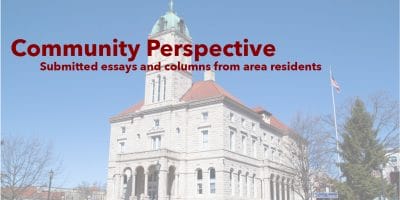By Randi B. Hagi, contributor
The Harrisonburg City Council once again postponed completing its appointments to the Harrisonburg Electric Commission by filling only one of two spots at Tuesday’s meeting, but it did unanimously approve a one-year pilot program to regulate sharable scooters and bikes.
City Attorney Chris Brown presented the one-year “pilot project” for the permitting of Bird and Lime-S electric scooters that have flooded the city since last fall. The council unanimously passed the Memorandum of Understanding outlining what the companies would have to do in order to do business in Harrisonburg with their “Shared Mobility Devices,” which also would include sharable bikes.
Brown said ordinances outlined in the council’s December meeting “went a long way towards addressing” problems with the scooters being abandoned, crowding sidewalks and causing some safety issues. But he said the one-year trial for a permit process will establish clear responsibilities for the scooter companies and aim to strike a balance between encouraging entrepreneurship and transportation options, and preventing the vehicles from being a nuisance.
Those responsibilities include:
- paying the city an $8,000 fee, primarily to pay for the staff time dedicated to responding to the scooters;
- sharing ride data with the city;
- limiting the number of their vehicles to 100, unless they can justify a larger fleet. (To justify that, the company would have to show that each vehicle is being used for, on average, four rides per day.)
One company has expressed interest in adding electric bicycles to their Harrisonburg fleet. Between bikes and scooters, their total number still cannot exceed 100 vehicles until that four rides per day threshold is met.
Mayor Deanna Reed said she has seen the bicycles in Charlottesville.
“They’re nice though, I might even get on one!” she said with a smile.
Brown said his staff studied more than 15 other localities, most of them in Virginia, to ensure that Harrisonburg’s rules are comparable.
“Ultimately, if things are not going well, the city can pull the plug with 10 days’ notice,” Brown said.
The Shenandoah Valley Bicycle Coalition contacted members of the city council by email to express concerns about the permit requirements being too strict, including the fleet size and rides per day.
The coalition also asked that “the process of crafting this policy be more transparent and incorporate public input in the future.”
In the meeting, Brown said once the city has more data about how the scooters are being used, they would appreciate public input.
More appointment football
The Harrisonburg Electric Commission, which has been trying to fill two seats on it’s five-member board since the end of last year, will get one new member after the council appointed Maria Papadakis to one of the spots. Papadakis teaches in JMU’s Integrated Science and Technology Program with an expertise in energy management.
Papadakis said on her application that her :expertise also includes the economics of renewable energy, grid management and regulation, and the emerging approaches to community resilience in electric power infrastructure.”
The council selected her from a slate of three names the HEC sent at the commission’s January meeting. But the council declined to pick a name from the other slate to fill the second position, which has been held by David Frackelton.
Frackelton, who operates an energy consulting firm and is seeking reappointment to the commission, has drawn criticism from environmental activists for social media posts regarding climate change. The nomination for his seat on the HEC board has been delayed since December. Frackelton told The Citizen last month he believes climate change is occurring but is skeptical about how much “difference” humans can make on global climate.
Instead of selecting Frackelton or either of the other two names on that slate, council member Chris Jones voiced his support for Chris Weaver, of Lantz Construction Co., who was one of the applicants on the same slate as Papadakis, to replace Frackelton.
Jones said Weaver’s “business acumen and the relationships Mr. Weaver has in the community” would meet HEC’s priority of including a particularly business-savvy commissioner, while “still giving us fresh perspective there.”
The council voted unanimously to appoint Papadakis and requested that HEC revise the other slate to include Weaver.
“Or we’ll just keep punting,” Jones said, referring to the back-and-forth the council has had with the commission over the appointments. “I like football.”
Also at the meeting:
- The council approved a supplemental appropriation of $74,443.25 for the Police Department to replace or add 21 cameras to patrol vehicles. Police Chief Eric English said the department currently uses two camera systems which connected to two different databases, which he described as a “convoluted” setup. The money comes from state asset forfeiture funds.
- Interim City Schools Superintendent Patrick Lintner presented city student enrollment estimates from the University of Virginia’s Weldon Cooper Center and the private company K-12 Inc. Currently, Harrisonburg High School is about 450 students past “effective capacity” of 1,350 students. With the new high school, the two schools combined would start between 400 and 600 students below capacity, given estimated enrollment for the next five years.“We’re not building this and going to open it full,” said Jones.
- The council appointed Emani Morse and Leons Kabongo to the Environmental Performance Standards Advisory Committee, after six seats were added with the hopes of including more community leaders to the committee.
Note: This article has been updated to clarify how the Shenandoah Valley Bicycle Coalition contacted members of council about the proposed scooter permits.
Journalism is changing, and that’s why The Citizen is here. We’re independent. We’re local. We pay our contributors. and the money you give goes directly to the reporting. No overhead. No printing costs. Just facts, stories and context. Thanks for your support.














